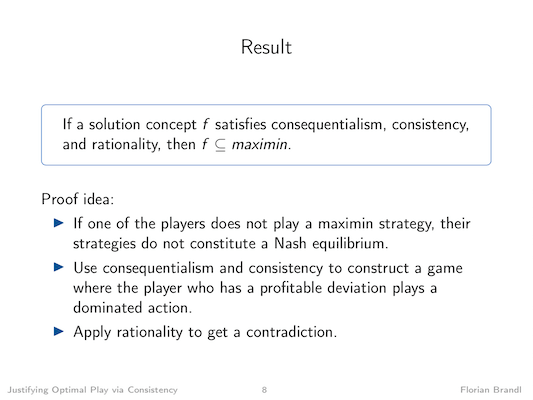Justifying Optimal Play via Consistency

Developing normative foundations for optimal play in two-player zero-sum games has turned out to be surprisingly difficult, despite the powerful strategic implications of the Minimax Theorem. We characterize maximin strategies by postulating coherent behavior in varying games. The first axiom, called consequentialism, states that how probability is distributed among completely indistinguishable actions is irrelevant. The second axiom, consistency, demands that strategies that are optimal in two different games should still be optimal when there is uncertainty which of the two games will actually be played. Finally, we impose a very mild rationality assumption, which merely requires that strictly dominated actions will not be played. Our characterization shows that a rational and consistent consequentialist who ascribes the same properties to his opponent has to play maximin strategies. This result can be extended to characterize Nash equilibrium in bimatrix games whenever the set of equilibria is interchangeable.
